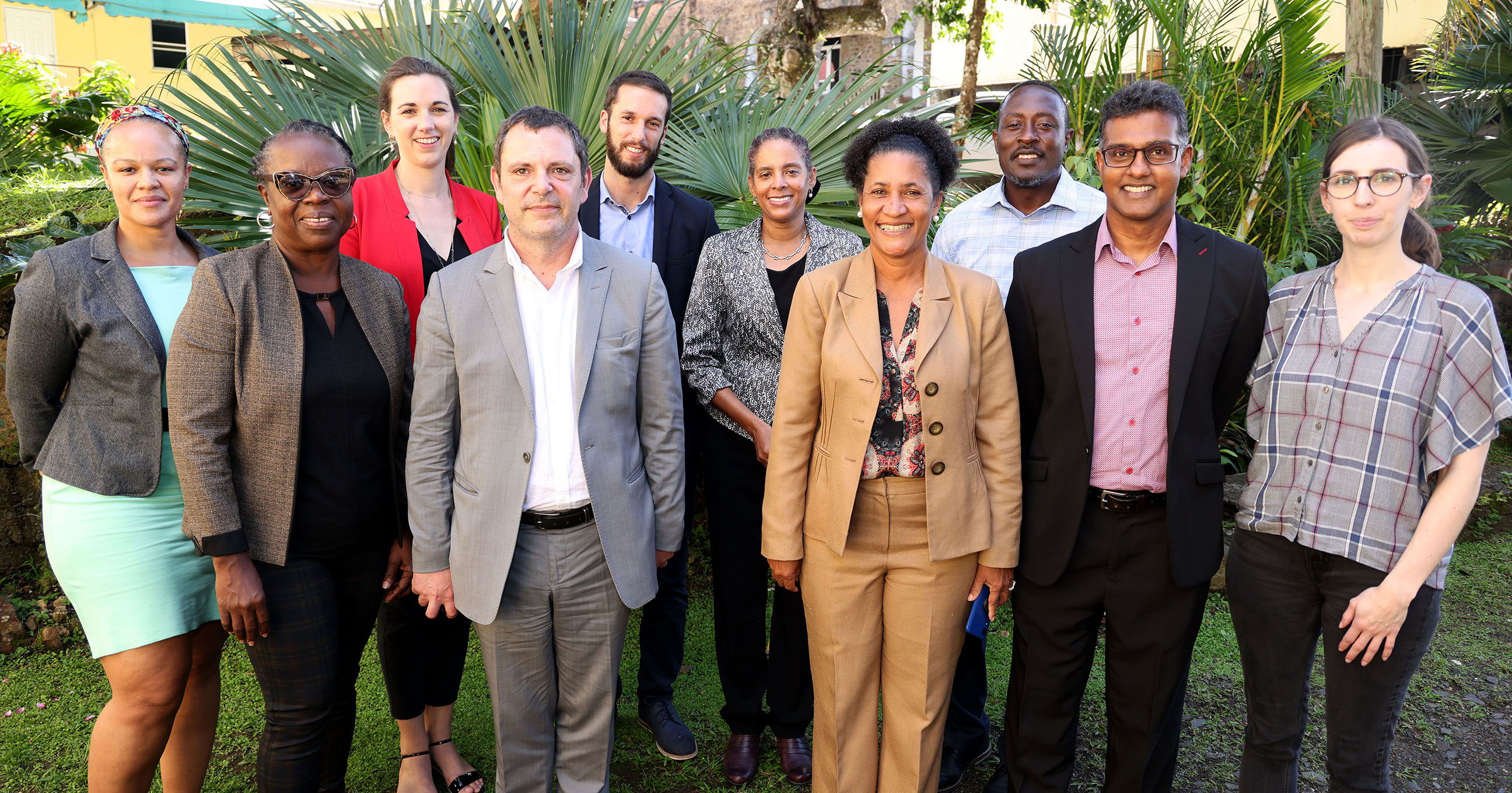The OECS Continues to Tackle Plastic Pollution in the Caribbean
OECS Media Release
Tuesday, January 17, 2022 — The Organisation of Eastern Caribbean States (OECS), with funding from the European Union, through the Agence Française de Développement, has embarked on a new initiative, the Recycle OECS Project, which will focus on the development and implementation of a recyclable plastic waste collection and treatment programme in the OECS. The overall objective is to define and develop a financially, self-sustainable plastic waste management model from collection to recycling, that can be adapted to the local context of OECS Member States in which it is being implemented.
Plastic pollution is a major problem in the Eastern Caribbean. According to the World Bank report, Marine Pollution in the Caribbean, Not a Minute to Waste, solid waste generated in the Wider Caribbean Region (WCR), on average contains 12% plastic. Additionally, Caribbean data from beach and coastal clean-ups in 2017 indicate that plastic beverage bottles account for 21% of all garbage collected.
The Recycle OECS initiative will be executed through a joint venture with Seureca, the Consulting and Engineering division of Veolia – a world leader in optimized resource management such as energy, waste recovery, and recycling – and Unite Caribbean Limited, a Development Cooperation consulting firm that promotes social, environmental, cultural, and economic development through cooperation and regional technical support.
Execution of the project will include:
- Carrying out an assessment of relevant initiatives that deal with solid waste management, thereafter, developing an OECS model system for plastic waste collection and transport.
- Identifying two countries for demonstration of the OECS model system.
- Structuring the collection of all types of plastic in two demonstration countries; and
- Structuring of plastic export chains and processing them in the Caribbean zone.
Tackling plastic pollution is critical for environmental sustainability, human health, and the economic viability of major sectors such as tourism, agriculture, and fishing; mainstays of the economy of many OECS Member states.
The Recycle OECS Project is part of a broader regional initiative with the European Union, which seeks to build on work being done on waste management and the Blue Economy in OECS Member States at the national and regional levels.
Susanna DeBeauville-Scott
Danny Moonie
